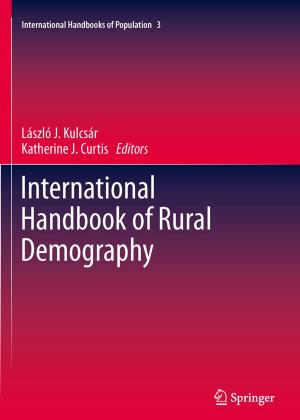Educational Innovation in Economics and Business IV
Learning in a Changing Environment
Nonfiction, Reference & Language, Education & Teaching, Educational Theory, Educational Psychology, Philosophy & Social Aspects| Author: | ISBN: | 9789401591812 | |
| Publisher: | Springer Netherlands | Publication: | March 14, 2013 |
| Imprint: | Springer | Language: | English |
| Author: | |
| ISBN: | 9789401591812 |
| Publisher: | Springer Netherlands |
| Publication: | March 14, 2013 |
| Imprint: | Springer |
| Language: | English |
The theme of "Learning in a Changing Environment" reflects the way in which educational thinking in Higher Education has undergone a rapid change throughout the world. The EDINEB network consists of people who see the role of educationalists as providing a framework for learning rather than taking a traditional approach of "chalk and talk". The key to the success of this fourth conference (and these articles selected from it) lies in the supportive role delegates give to each other in sharing experiences (and problems!) in a changing environment. The network has grown because ofthe commitment of members to form what is in effect a multinational self-help group which is dedicated to continual improvement in the educational environment. This fourth EDINEB conference brought together 95 registrations from over 21 countries. The 16 papers selected represent a cross-section of the articles submitted to the authors and the book is divided into four sections. 1 LEARNING OBJECTIVES AND PROGRAMME STRUCTURES The first section examines how different programmes (in different of countries and cultures) have been structured to meet the particular needs both the participants/students and the economic environment within which they operate.
The theme of "Learning in a Changing Environment" reflects the way in which educational thinking in Higher Education has undergone a rapid change throughout the world. The EDINEB network consists of people who see the role of educationalists as providing a framework for learning rather than taking a traditional approach of "chalk and talk". The key to the success of this fourth conference (and these articles selected from it) lies in the supportive role delegates give to each other in sharing experiences (and problems!) in a changing environment. The network has grown because ofthe commitment of members to form what is in effect a multinational self-help group which is dedicated to continual improvement in the educational environment. This fourth EDINEB conference brought together 95 registrations from over 21 countries. The 16 papers selected represent a cross-section of the articles submitted to the authors and the book is divided into four sections. 1 LEARNING OBJECTIVES AND PROGRAMME STRUCTURES The first section examines how different programmes (in different of countries and cultures) have been structured to meet the particular needs both the participants/students and the economic environment within which they operate.















